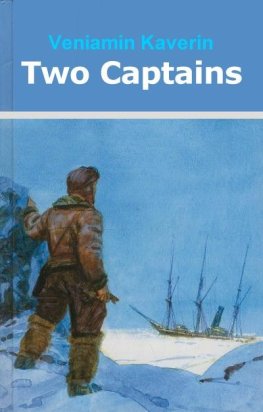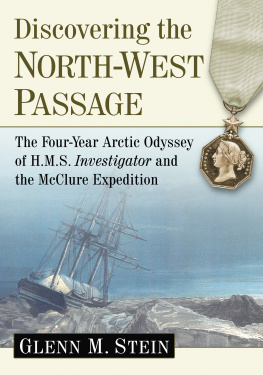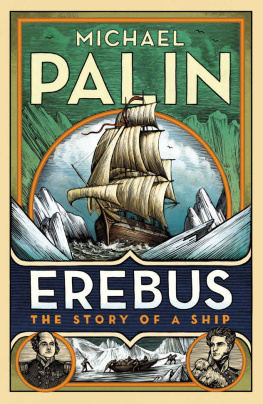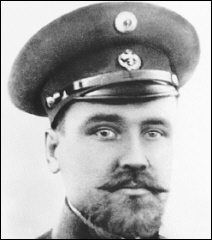copyright 2000 by Random House, Inc.
Maps copyright 2000 by David Lindroth, Inc.
All rights reserved under International and Pan-American Copyright Conventions. Published in the United States by Random House, Inc., New York, and simultaneously in Canada by Random House of Canada Limited, Toronto.
Grateful acknowledgment is made to William Barr for permission to incorporate some material from his largely unpublished English translation of In the Land of White Death by Valerian Albanov.
Copyright 2000 by William Barr. Used by permission.
Modern Library is a registered trademark of Random House, Inc.
Interior photos courtesy of the Arctic and Antarctic Museum of St. Petersburg
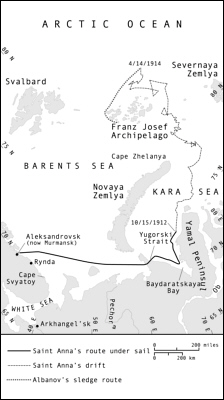
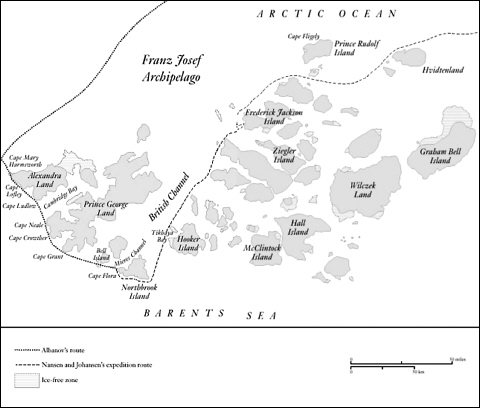
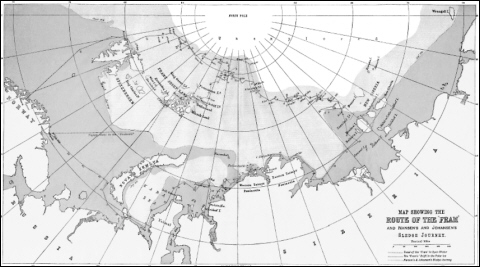
Map from Farthest North by Fridtjof Nansen

PREFACE
Jon Krakauer
When Robert Falcon Scott perished on an Antarctic glacier in 1912, just eleven miles from salvation, he was venerated as one of the foremost fallen heroes in the history of the British Empire. There is scarcely a schoolboy in all of Britannia who cant recite the story of Scotts ill-starred quest by heart.
Three years after Scott so famously came to grief, an expedition to Antarctica under the leadership of Ernest Shackleton seemed headed for a similarly grim end. Shackletons ship, the Endurance, was crushed by ice and sank, leaving twenty-eight men stranded on the frozen Weddell Sea. Shackleton, however, managed to deliver his entire team to safety, by means of an audacious eight-hundred-mile voyage across the gale-ravaged South Atlantic Ocean in a puny open lifeboat. This near-miraculous journey was recently made familiar to millions of readers by such deservedly popular books as Endurance, by Alfred Lansing, and The Endurance, by Caroline Alexander. Shackletons name became synonymous with courage, tenacity, and brilliant leadership under pressure.
All of which begs the question: If Scott and Shackleton have attained such posthumous stature and renown, why is Valerian Ivanovich Albanov all but unknown to the world?
Albanov was a Russian navigator. In 1912, six months after the death of Scott, he set sail from Alexandrovsk (present-day Murmansk) as second in command on the good ship Saint Anna, bound for Vladivostok, 7,000 miles away, across treacherous Arctic waters. Some two years before Shackletons Endurance was beset by pack ice off Antarctica, Albanovs Saint Anna was likewise trapped at the opposite end of the globe, in the frozen Kara Sea. Eighteen months later, with supplies running perilously low and his vessel more firmly locked in the ice than ever, Albanov abandoned ship and led thirteen men southward in a desperate fight for survival.
The trials Albanov endured as he struggled his way back to civilization were every bit as harrowing as those faced by Shackleton. And Albanovs story is perhaps even more riveting to read, because it is told in Albanovs own voice, as entries in a daily journal. (In contrast, the recent bestselling accounts of Shackletons ordealthough wonderfulwere written many decades after the fact, by authors who werent present during the events they describe.) Albanov, moreover, turned out to be both a gifted writer and an uncommonly honest diarist. He wrote a spare, astounding, utterly compelling book thatthanks to bad luck and the vagaries of historyvanished into the recesses of twentieth-century letters.
But it remains in the shadows no longer. Here, published in English for the first time, is In the Land of WhiteDeath. More than eighty years after Albanov wrote this tour de force, there is reason to hope that he might finally receive the recognition he deserves.
JON KRAKAUER is the bestselling author of Into the Wild and Into Thin Air, and was a finalist for the Pulitzer Prize in 1998.
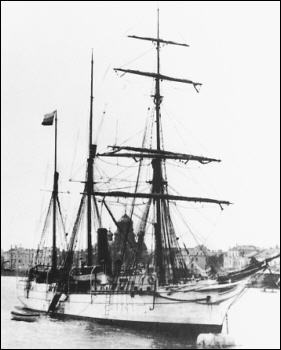
The Saint Anna upon its departure from St. Petersburg
INTRODUCTION
David Roberts
How is it possible that the story of the 191214 voyage of the Saint Anna, one of the most tragic and heroic episodes in Arctic annals, remains virtually unknown outside of Russia? Even more regrettable, how can it be that the narrative of that expedition, written by one of its two survivors, Valerian Ivanovich Albanov, lurks in a limbo of historical obscurity? For Albanovs account is one of the rare masterpieces of polar literature, deserving of comparison with the classic texts of Fridtjof Nansen, Robert Falcon Scott, Apsley Cherry-Garrard, and Sir Ernest Shackleton. Yet with this edition, Albanov appears in English for the first time.
Although I have been a devotee of Arctic and Antarctic exploration for three decades, until 1997 I had never heard a word about the ill-starred journey of the SaintAnna, commanded by Georgiy Brusilov, nor of Albanovs daring flight from the doomed ship across the ice in quest of salvation. In Jeannette Mirskys definitive history of northern exploration, To the Arctic!, Brusilovs expedition merits a mere sentence and a half, and that only to record the fruitless search for the lost party by a more famous explorer.
Three years ago, a French publisher, Michel Gurin, recommended to me an obscure book, published in French in 1928, called Au pays de la mort blanche. He in turn had been tipped off by Christian de Marliave, a seasoned explorer and connoisseur of polar literature. At Harvards Widener Library, I found a copy of this French edition of Albanov, whose account in Russian was originally published in 1917. During the sixty-eight years the book had stood in the Widener stacks, it had never been checked out!
I read Albanov with a sense of awe laced with a growing excitement, for it is a stunning revelation to discover a great work in a field of writing in which one thinks one knows all the canonic books. It is thus a pleasure to introduce this neglected narrative to a new audience, and to muse on what circumstances allowed Albanov to write so vividly about the Arctic nightmare he barely survived.




